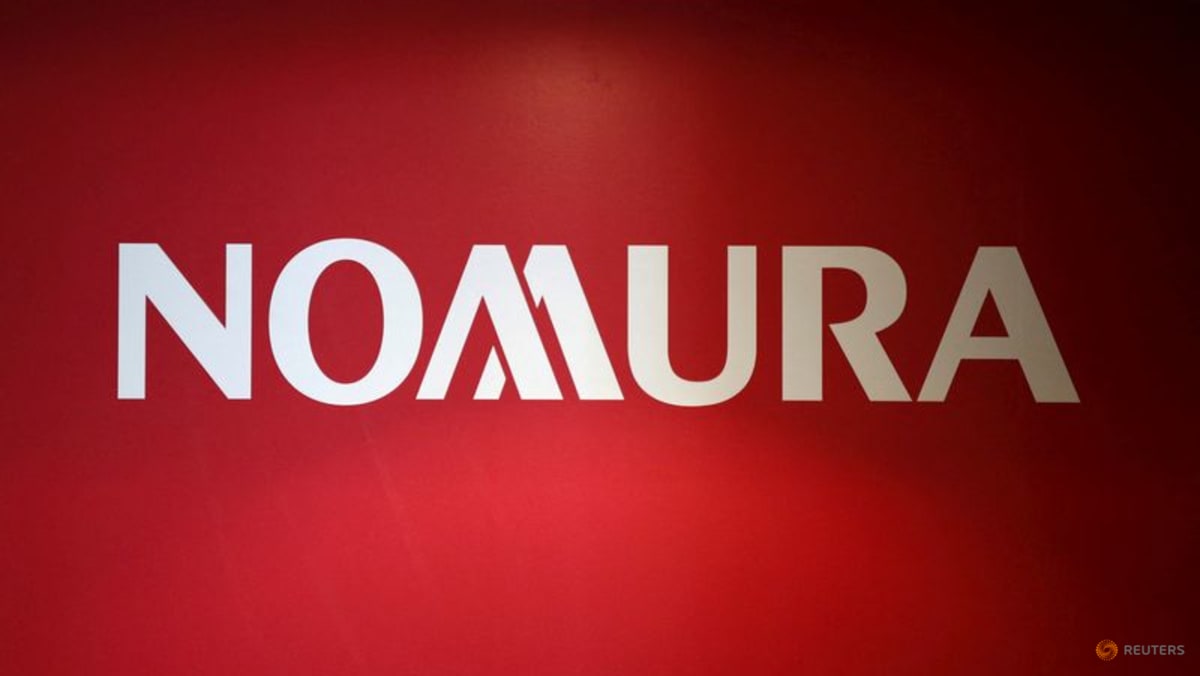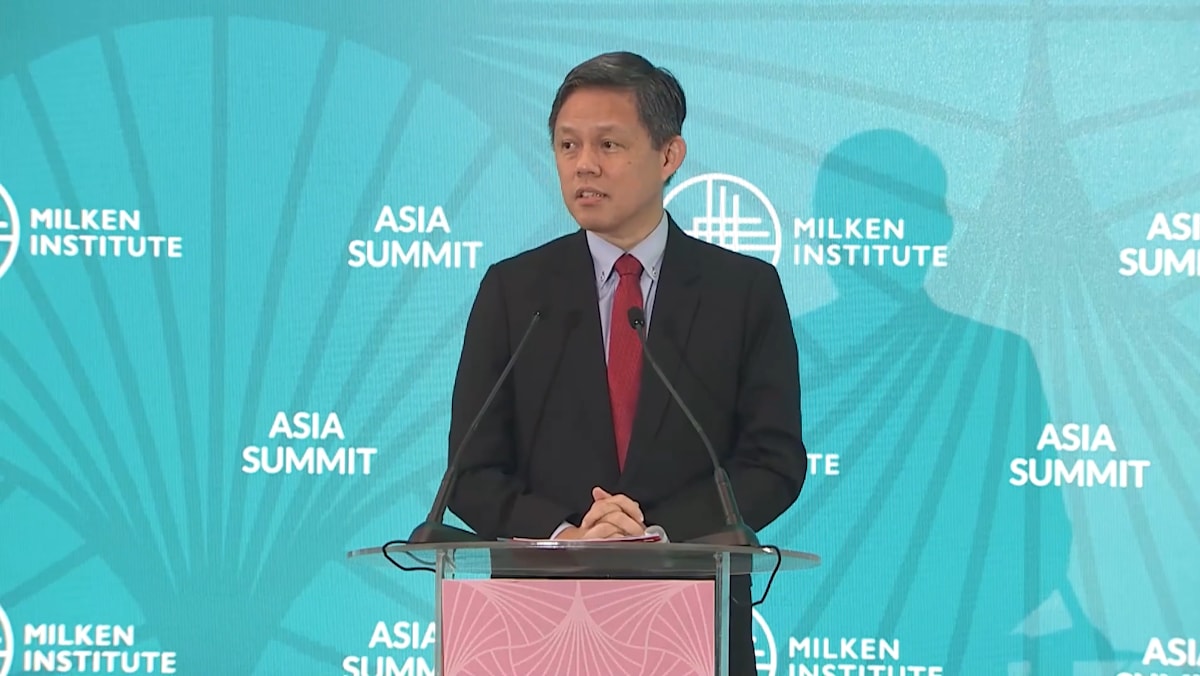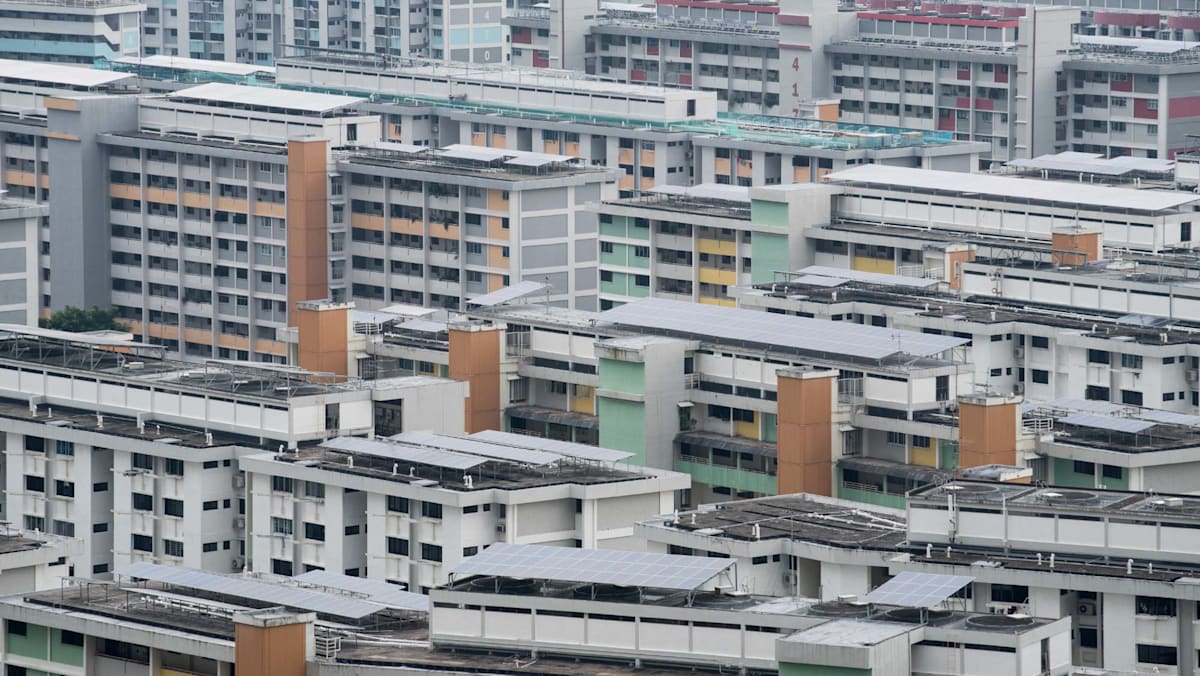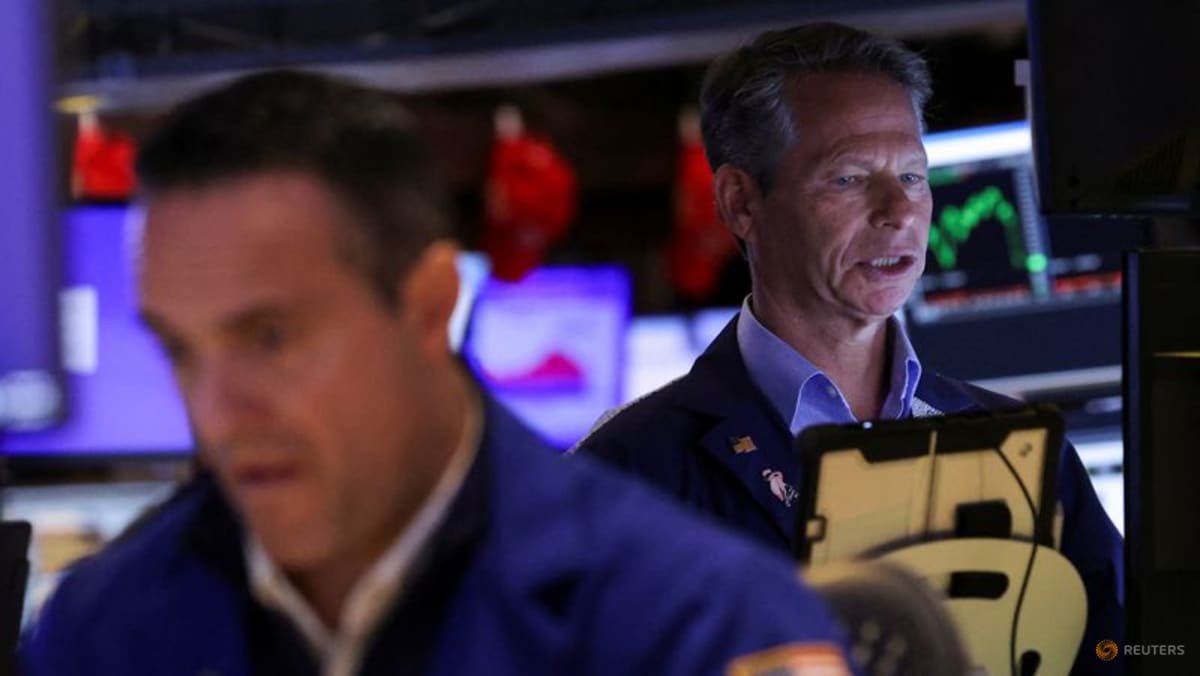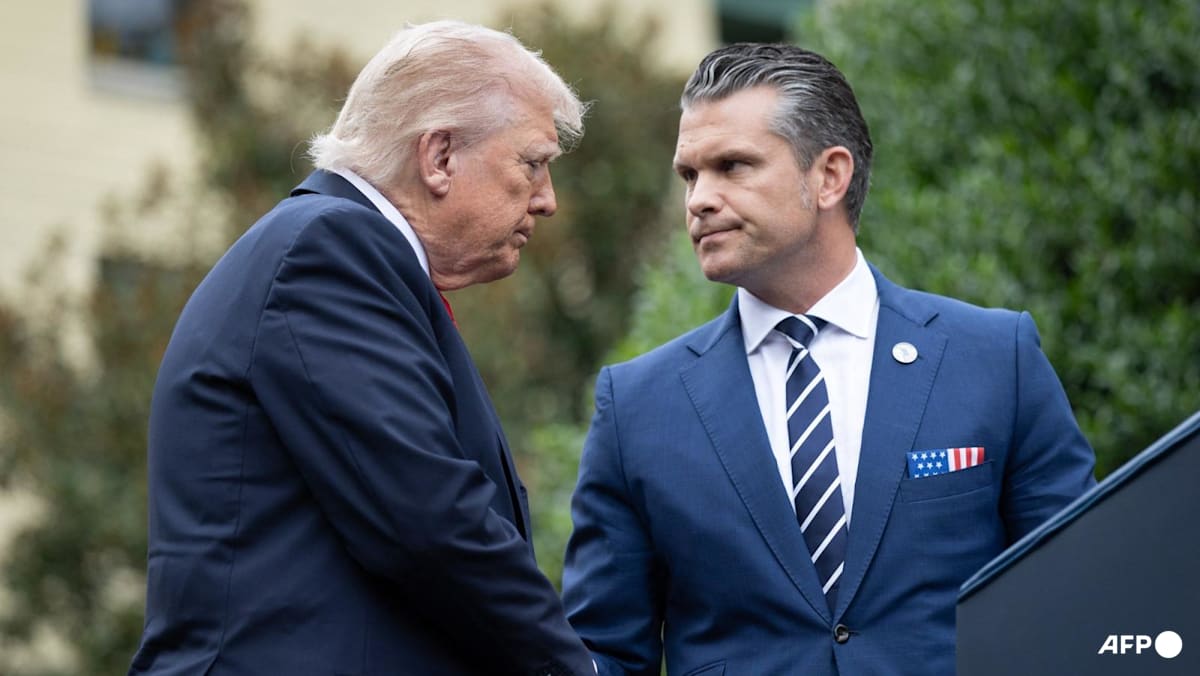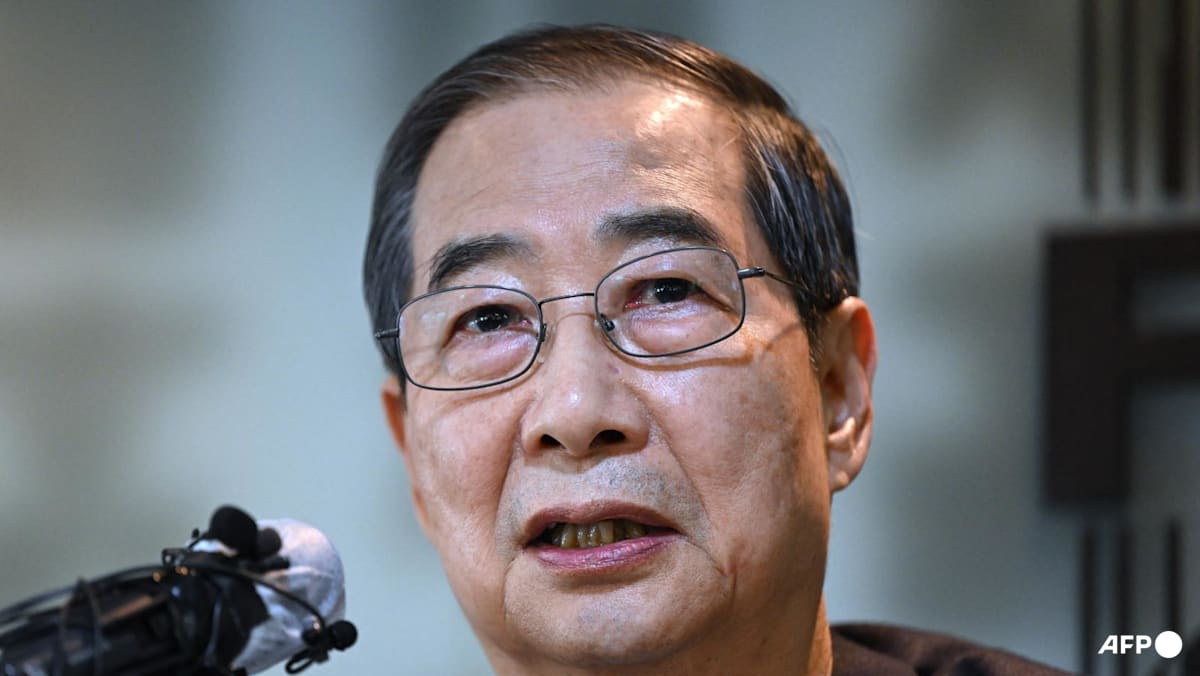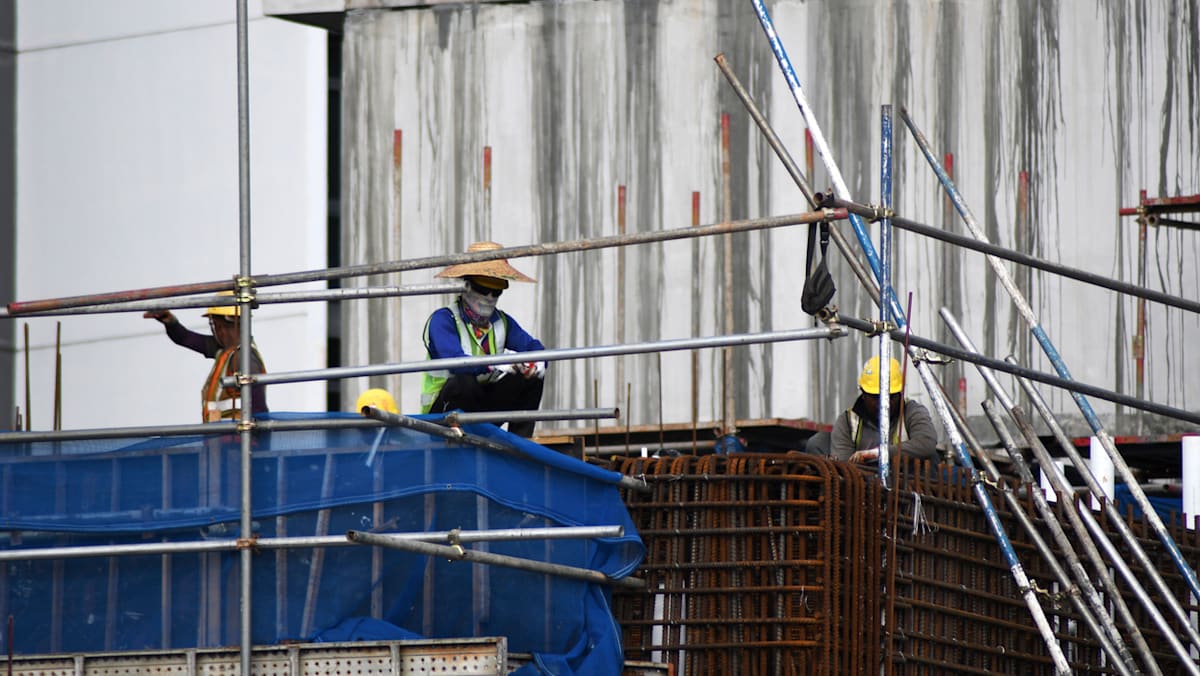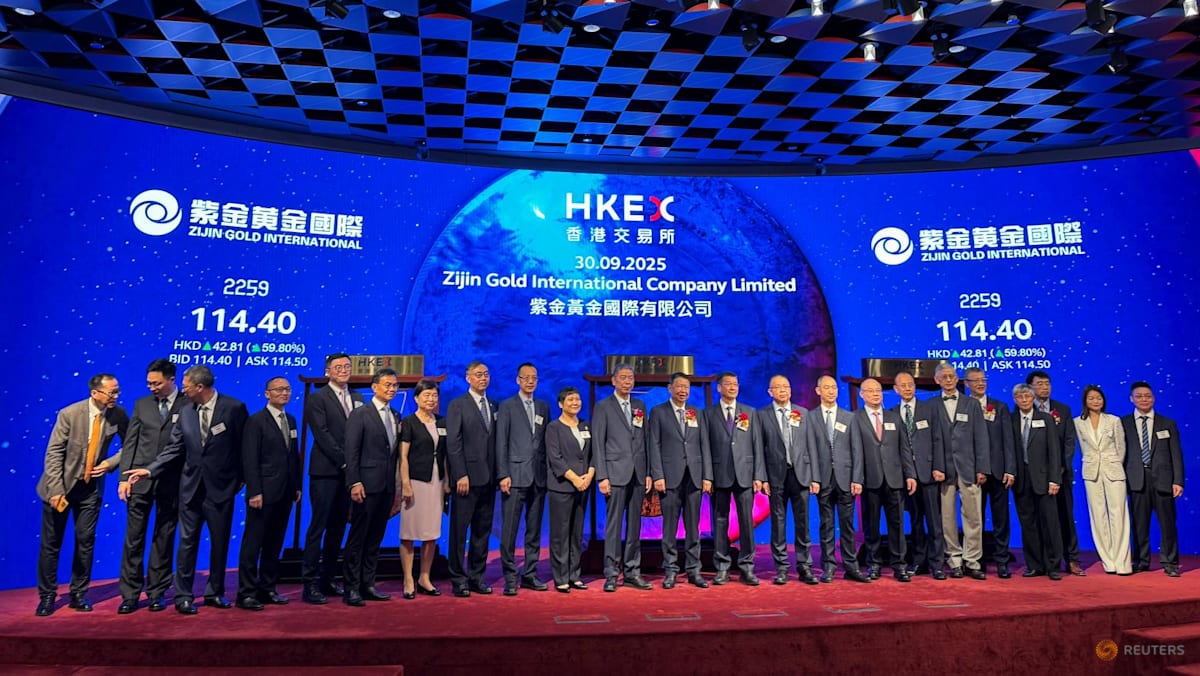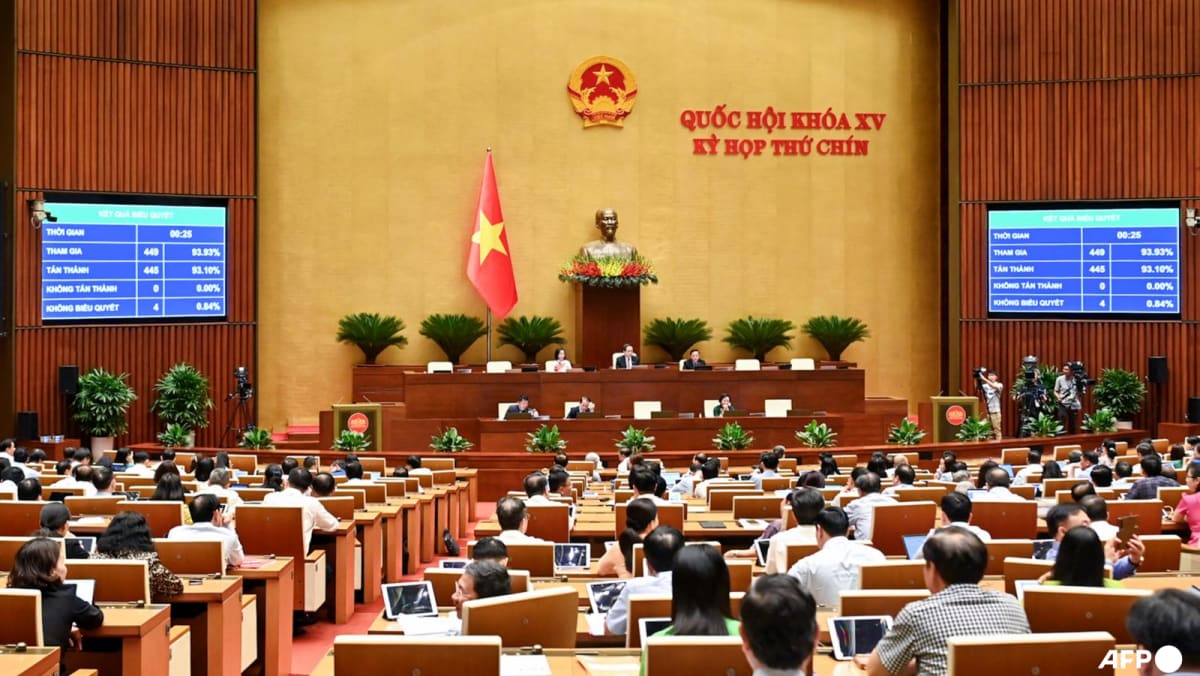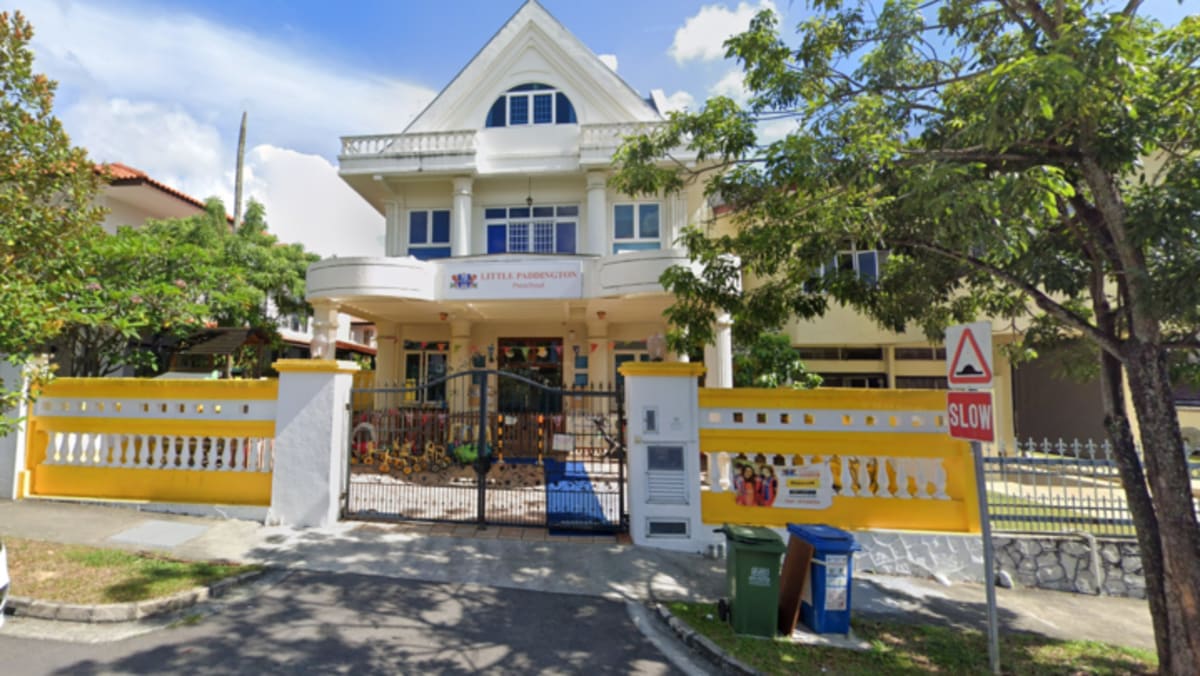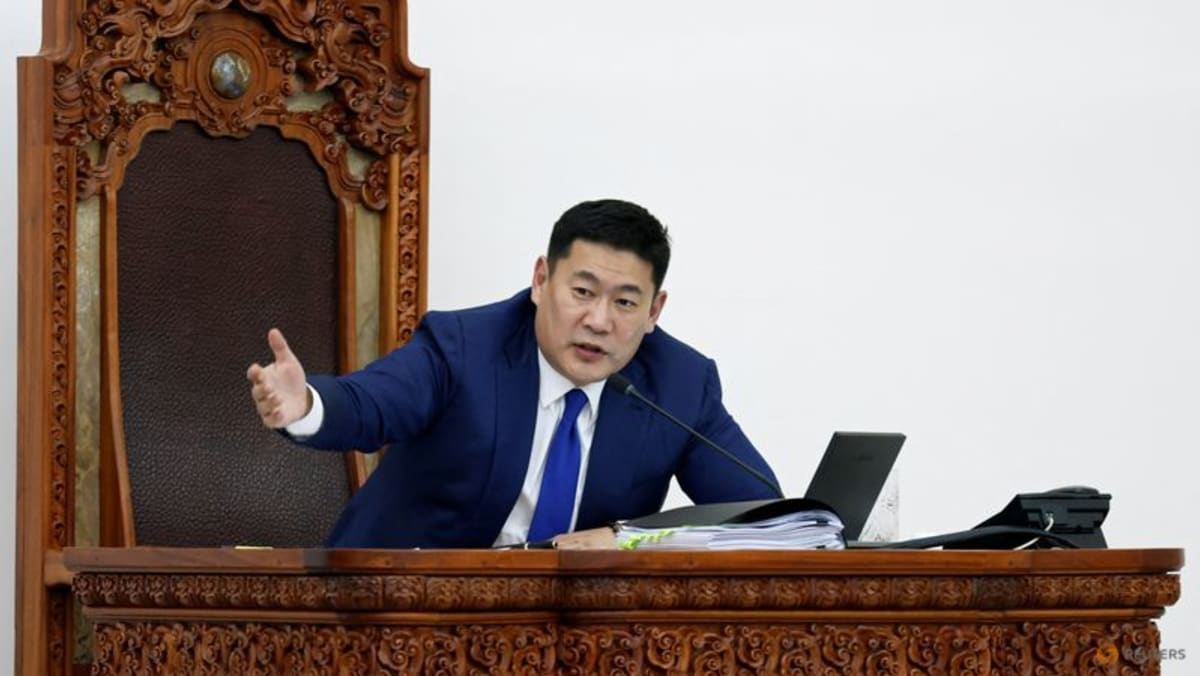The group’s reunion has injected fresh energy into parts of the South Korean capital, with fans from around the world flocking to places associated with the group, such as cafes and restaurants.
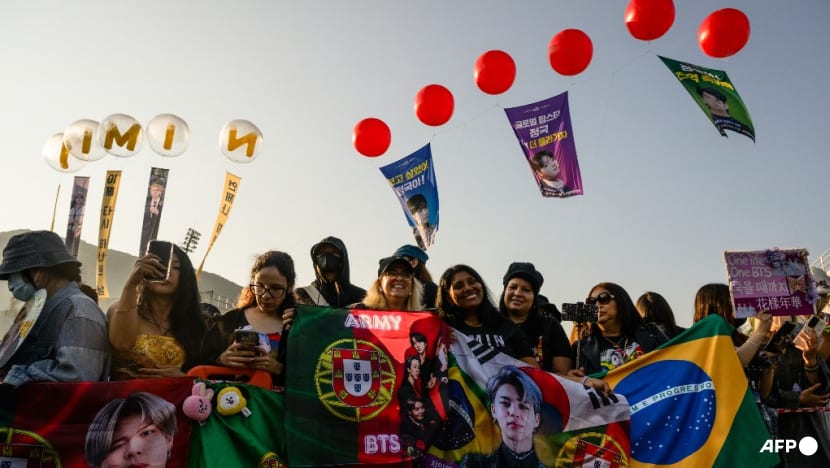 Fans of K-pop boy band BTS wait for members Jimin and Jungkook at an outdoor sporting facility in Yeoncheon on Jun 11, 2025, shortly before their release from 18 months of South Korean military service. (Photo: ANTHONY WALLACE / AFP)
Fans of K-pop boy band BTS wait for members Jimin and Jungkook at an outdoor sporting facility in Yeoncheon on Jun 11, 2025, shortly before their release from 18 months of South Korean military service. (Photo: ANTHONY WALLACE / AFP)
New: You can now listen to articles.

This audio is generated by an AI tool.
SINGAPORE: The Black Drum cafe in Seoul, adorned with BTS merchandise, is a haven for fans of the K-pop supergroup.
Business has picked up since all seven BTS members finished their mandatory military service last month, said its owner Kim Yong Sun.
“Our boys’ power has not faded - and honestly, I knew it wouldn’t. But still, this time was overwhelming. ARMYs had been holding back for so long,” she told CNA, referring to the official name for the group’s fans.
“Everything they held in during the three years the members were in the military - it just exploded all at once. It was so crowded (on the days they returned), I almost got crushed.”
The group’s reunion has injected fresh energy into parts of the South Korean capital, with fans from around the world flocking to places associated with the group, such as cafes and restaurants.
It is also raising hopes of boosting the country’s slowing economy, which has been weighed down by uncertainties over United States tariffs and domestic political turmoil.
BUSINESSES SEEING BENEFITS
BTS has been credited with bringing K-pop to the international stage and revitalising the Korean music industry. It is considered one of the leading figures of the Korean wave, or Hallyu, which has spread extensively throughout the world.
In 2019, the group brought in an estimated US$4.65 billion, accounting for almost 0.3 per cent of South Korea’s gross domestic product.
Businesses like the Black Drum cafe are already seeing the benefits of its return, with events popping up in Seoul such as an exhibition of fan-made artwork of BTS members.
 The interior of the Black Drum Cafe in Seoul, featuring posters of K-pop supergroup BTS member Jin for his first solo worldwide concert tour.
The interior of the Black Drum Cafe in Seoul, featuring posters of K-pop supergroup BTS member Jin for his first solo worldwide concert tour.
In Goyang city, about 23km away from the capital, crowds gathered for an annual fan event last month to celebrate the group’s 12th anniversary.
A fan from Malaysia who attended the event told CNA she had travelled to South Korea just for the reunion.
“For me, I think (their comeback) will be boosted up … We can't wait to see what they come up with for the next album, for the next chapter,” she added.
The group will make its comeback as a full group with a new album and tour in spring 2026, with high hopes that this will reinvigorate the K-pop market.
Physical album sales dropped by 19.5 per cent last year – the first decline in a decade. Experts attributed this to big groups like BTS being on a break and girl group Blackpink being less active, as well as relatively high global shipping costs.
 Fans of K-pop band BTS wait for photos near an ARMY Bomb during the annual 2025 BTS Festa celebrating the BTS' debut anniversary in Goyang, South Korea on Jun 13, 2025. (AP Photo/Lee Jin-man)
Fans of K-pop band BTS wait for photos near an ARMY Bomb during the annual 2025 BTS Festa celebrating the BTS' debut anniversary in Goyang, South Korea on Jun 13, 2025. (AP Photo/Lee Jin-man)
If BTS is able to make a strong comeback, South Korea’s economy and global image will be positively impacted, observers added.
The Korea Culture & Tourism Institute previously estimated that a single BTS concert in Seoul could inject up to 1.22 trillion won (US$895 million) into the Korean economy and create as many as 10,000 jobs.
“Their fandom is so solid. The passion of fans that has been lying dormant will rise again, and that could create a bigger ripple effect than before,” said Chae Jee Young, a senior research fellow from the institute.
GLOBALISATION OF K-POP
Still, media and communications professor Park Han Woo from Yeungnam University said it remains to be seen if other K-pop groups, like boy band Seventeen and girl group Twice, can replicate the success of BTS and Blackpink.
He pointed to the globalisation of K-pop, with the hugely popular K-pop musical animation film KPop Demon Hunters being produced outside of South Korea.
“BTS and K-pop helped our economy a lot with tourism, albums and videos. (But) if we rely too much on one thing, it’s a risky thing. Bands change,” he told CNA938.
Still, Chae noted that the group's global influence has already transformed the country’s image in ways that are not easily quantifiable. She said BTS is “essentially representing Korea around the world”.
“Once someone becomes interested in Korea through BTS, their curiosity expands to Korean culture, tourism and more,” she added.
“All that brings long-term benefits to Korea, and so honestly, trying to measure all the benefits in specific economic terms could be somewhat pointless.”





